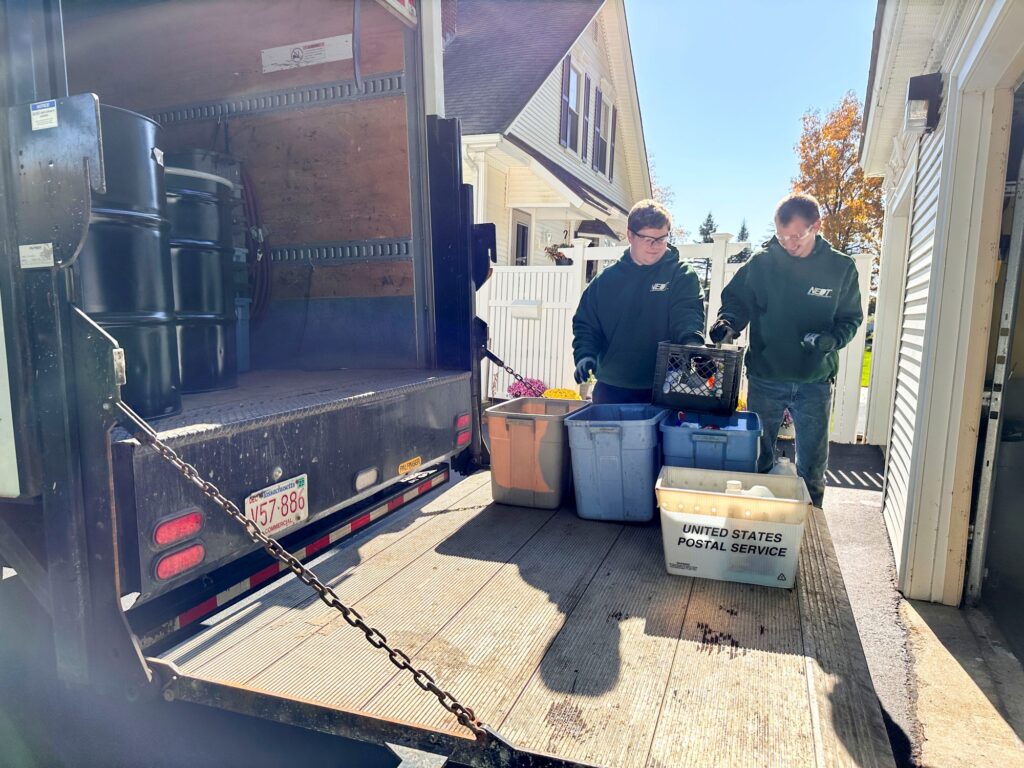Whether you’re moving down the street or across the country, a home move means finally dealing with those old products gathering dust and all the electronics you’ve left moldering in storage. So when you start filling boxes, you’re bound to find some hazardous waste, especially if you’ve been in your current home for a long time. If you need to know how to identify and dispose of hazardous waste when moving out of a home or downsizing, this blog is for you!
Types of Hazardous Waste to Find Before a Move
There are many different types of hazardous waste you’ll want to find and dispose of properly before a move. Most of these products can’t go in the trash, and even dumpster rentals won’t accept them, so learn how to find and identify them. Below are the most common kinds of household hazardous waste by type:
- Electronics: Also known as eWaste, this covers many kinds of electronics that contain hazardous heavy metals, along with other threats found in TVs and batteries.
- Hobbies and Crafts: Specialty supplies like photography products, pool chemicals, automotive products, and glues and adhesives are considered hazardous.
- Heavy-Duty Cleaners: Everything from furniture polish to carpet cleaner can have toxic ingredients and corrosive cleaners like muriatic acid.
- Home Improvement: This includes everything from paint (challenging to dispose of in bulk) to gardening chemicals like fertilizers, herbicides, and pesticides.
- Old Household Chemicals: During a move, you may find old chemical products, especially from bygone hobbies. Make sure to identify and dispose of them properly.
- Flammables: You might have some old gasoline (which does go bad) or old campaign or grilling flammable gasses such as propane or butane.
Note that all of these situations are also true if you plan on doing a house cleanout, but you’ll need to take some extra steps since everything isn’t being sorted through like a move. Learn more in this blog, What to Do with Hazardous Waste in a House Cleanout.
Dealing with Household Hazardous Waste as a Third Party
If you’re a landlord, estate agent, or junk hauling professional, you might find these duties fall to you if tenants leave behind hazardous waste after a move, after an eviction, or during an estate sale. Learn more in our blogs, Dealing with Hazardous Waste for Estate Agents and Landlords, and What Happens When a Junk Removal Company Takes Hazardous Waste? Note that depending on the situation and amount of waste, it might be time to call in a pick-up from NEDT.
We hope your move goes well and you’re staying with us in New England! For further reading, from when it’s time to dispose of hazardous waste to dealing with deteriorating containers, check out our our blog. If you’re ready to deal with that hazardous waste, contact NEDT today to learn more about our services. We’ll guide you through easily disposing of hazardous waste at our collections centers or scheduling a pick-up.



Leave a Reply